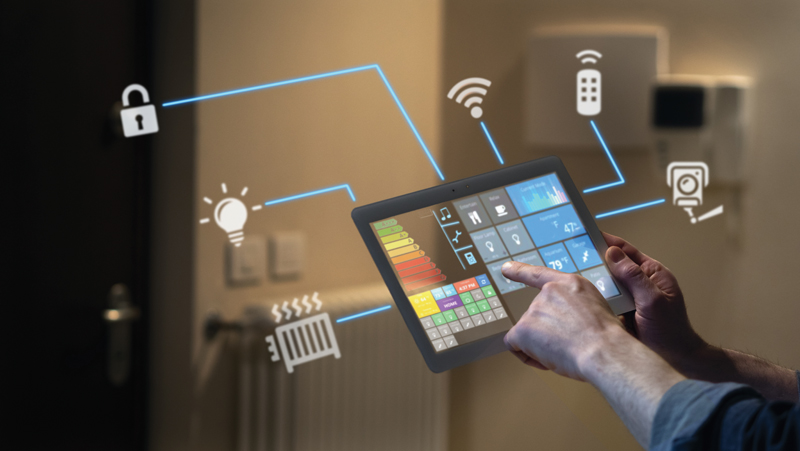 A new report exploring consumer views on smart technology and data storage shows excitement around smart technology innovation but a need for education on data storage
A new report exploring consumer views on smart technology and data storage shows excitement around smart technology innovation but a need for education on data storage
Western Digital has worked with Loudhouse to conduct 6,084 online interviews with citizens in the UK, France, Germany, Russia, Italy, UAE and Saudi Arabia to discover their level of understanding and opinions regarding the development of smart infrastructure in the home, and in towns and cities. The positive news for technology designers and manufacturers is that interest in smart technology innovations, whether in the home or the city, is high. A substantial 90 per cent of those surveyed across EMEA said that they are looking forward to at least one forthcoming form of smart technology.
The smart innovations for the home that drew the most excitement in EMEA include: home security cameras (36 per cent), entertainment streaming services (35 per cent) and lighting/heating controls (35 per cent). Whereas interest in smart city infrastructure is centred around electric vehicle charging points (39 per cent), driverless vehicles (38 per cent) and security cameras (37 per cent).
Consumers see the key benefits of security cameras as keeping them safe (52%) and reducing crime (40%). This is similar to smart highway cameras, with keeping them safe (46%) and reducing crime (28%) highlighted as the key benefits. Effective and compliant data storage obviously plays a role in helping realise these benefits.
Davide Villa, business development director for EMEAI at Western Digital, commented: “One of the biggest storage challenges with security cameras is the fact that they’re always on. Storage technology therefore has to be able to keep up, delivering reliable high-performance data transfer and data writing speeds to ensure high-quality video is captured and analysed.”
The research also found a clear gap between consumer awareness of, and appetite for, smart technology applications, as well as the level of adoption for these products. On average, 83 per cent of those surveyed across Europe and the Middle East were familiar with smart infrastructure technology for homes and 81 per cent were also aware of smart city technology. And yet, when it comes to usage, only 35 per cent had used smart home technology and 31 per cent had come into contact with smart city technology.
In terms of geographical breakdown, UK consumers are positioned in the middle of the group surveyed for awareness of smart home (79 per cent) and smart city (76 per cent) technologies. This is in comparison to countries where consumers were more aware like Italy (91 per cent) and the Middle East (87 per cent) for smart home and smart cities respectively.
According to the research, that barrier to adoption would appear to be based on a lack of understanding of how consumers’ data is captured, stored and used. Just 19 per cent of UK consumers believed they knew more about personal data capture than others, highlighting a general lack of awareness and the need for reassurance and clarity from smart technology vendors on this issue.
In addition, consumers also have concerns about whether their data is at risk, with the Western Digital research revealing that as many as one in four consumers have no trust in organisations to keep their data safe.
When asked about their priorities for managing and storing smart technology data, consumers across EMEA identified the following as being the most important:
- That the data is secure against breaches or hacks – 73 per cent
- That the data is stored on drives that are safe and reliable – 70 per cent
- That the data complies to regulations – 70 per cent
- That the data is used in the right way by the business – 70 per cent
Davide Villa added: “The next few years should be an exciting time for smart technology providers. The market is growing, consumers are excited for what’s coming next, but a lack of knowledge around smart technology infrastructure threatens this progress and the gains that will go with it.
“The report shows a real consumer interest in smart technology and an opportunity to educate consumers on data storage and protection parameters to turn this interest into uptake. This is an opportunity for all those in the value chain, including installers. If they can advise customers on not only the best smart technology, but also the most appropriate storage to meet their needs and ensure they’re in control of their data, they can help address any concerns and ensure customers have the smart security systems that give them the best possible experience.
“Local storage and encryption can play a key role in reducing the knowledge gap. Educating customers on solutions such as consumer storage devices will put them back in control of their data in smart technology in the home. In addition, the implementation of the right storage infrastructure and technology and subsequent education on this will help consumers to feel that their information is more secure and remove doubt around these new technologies. The appetite is clearly there.”

